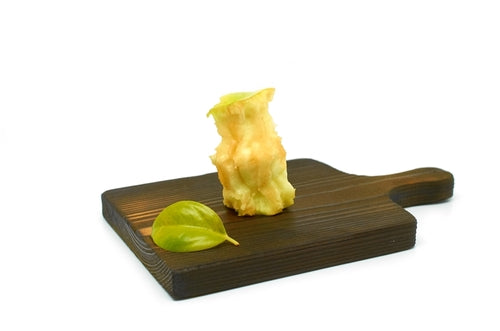Optimize Your E-commerce Calculations with Zip2Tax Sales & Use Tax Rates.
Optimize Your E-commerce Calculations with Zip2Tax Sales & Use Tax Rates.

Apple Inc to Pay NYS Back Sales Tax for 10 Years Promotion
May 26, 2022 5 min read
Written By Guest Blogger S.M. Oliva
Apple, Inc to Pay NYS Back Sales Tax for 10-Yr-Old Promotion
Apple Inc. is one of the world’s largest retailers. The consumer electronics and online services giant reported $123.9 billion in sales during the first quarter of its 2022 fiscal year. According to Variety, at the end of 2021, Apple had an active “installed base” of 1.8 billion devices and 785 million subscribers to at least one of its services.
Despite its size and complexity – or perhaps because of it – Apple is not immune from disputes with local sales tax authorities. Indeed, an appeals court in New York recently held that Apple owed that state over $730,000 in back sales taxes on transactions that took place over a decade ago. Of course, Apple spent much of the past decade fighting the state in court, only to lose at every stage of the litigation.
POS Issues Lead Apple to “Sell” Free Gift Cards
So how did Apple get itself into sales tax trouble? The whole thing began back in 2011, when Apple launched the Mac App Store, a digital software platform for the company’s Mac computer line. As the Mac had long been popular in the educational market, Apple decided to promote the Mac App Store by offering a special discount to educational employees and parents of children attending school. Any “qualified education individuals” who bought a Mac or an iPad during a specified period would receive a “Back to School Gift Card” for $50 or $100. This was an Apple-branded gift card that could only be used in Apple’s App Stores.
In the months leading up to this promotion, Apple’s staff discovered an implementation issue. Specifically, the point-of-sale (POS) system used in Apple’s retail stores could not process the included gift card as “free.” To work around this, Apple decided to charge customers for the gift card but reduced the price of the qualifying purchase accordingly.
In other words, say someone bought an $1,200 iMac and received a $100 App Store gift card during the Back to School promotion. At the time of purchase, the Apple retail store recorded two separate transactions–one for the iMac, the other for the gift card. The customer’s receipt then showed they paid $100 for the gift card and $1,100 for the iMac, the latter reflecting a $100 discount to offset the free gift card.
Now, gift cards are not subject to sales tax in New York, the reason being that taxes are not owed until the card is actually used to make a purchase. But this led to an issue when the New York Department of Taxation and Finance audited Apple’s sales tax receipts for 2011 and 2012, the years it ran the Back to School promotion. Apple only collected and remitted sales tax on the discounted purchase prices of the computers and iPads, excluding the value of the gift cards. Apple argued this was legal, since its POS system recorded the gift cards as separate non-taxable transactions.
The Department disagreed. It claimed Apple was trying to have it both ways. On the one hand, the company was clearly giving away free gift cards. On the other hand, Apple tried to use its POS system to create the illusion there was a separate sale when there really was not.
Apple Loses Three Rounds of Appeals
The Department ultimately determined that Apple owed additional sales tax to account for its POS shenanigans. The final balance due was $731,882.84. Apple decided to challenge the Department’s findings. This led to three separate legal proceedings, all of which Apple lost.
The most recent proceeding took place before the Third Department of the New York Supreme Court’s Appellate Division, one of the state’s four intermediate appeals courts. A five-judge panel agreed with the two administrative tribunals that previously reviewed the case and found Apple’s position lacked merit. The Appellate Division said Apple’s own terms regarding the Back to School promotion made it clear that customers “received” a gift card when they made a qualifying purchase. At no point did the customer believe they were “buying” a gift card. Furthermore, the “discount” applied to the product sale was expressly tied to the gift card–i.e., if the customer returned the qualifying purchase for any reason, they also had to return the gift card.
The Third Department reiterated that under New York law, sales tax was not owed on a gift card’s value unless and until it was used to make a subsequent purchase. This did not, however, result in “double taxation” as Apple claimed. Rather, sales tax was simply owed on the full value of the original sale as the gift card was free, even if Apple’s POS system refused to recognize it as such.
S.M. Oliva is a writer living in Virginia. He authors the blog Computer Chronicles Revisited.
Leave a comment
Comments will be approved before showing up.
Subscribe
Sign up to get the latest on sales, new releases and more …

